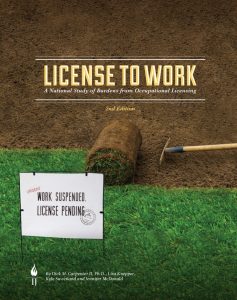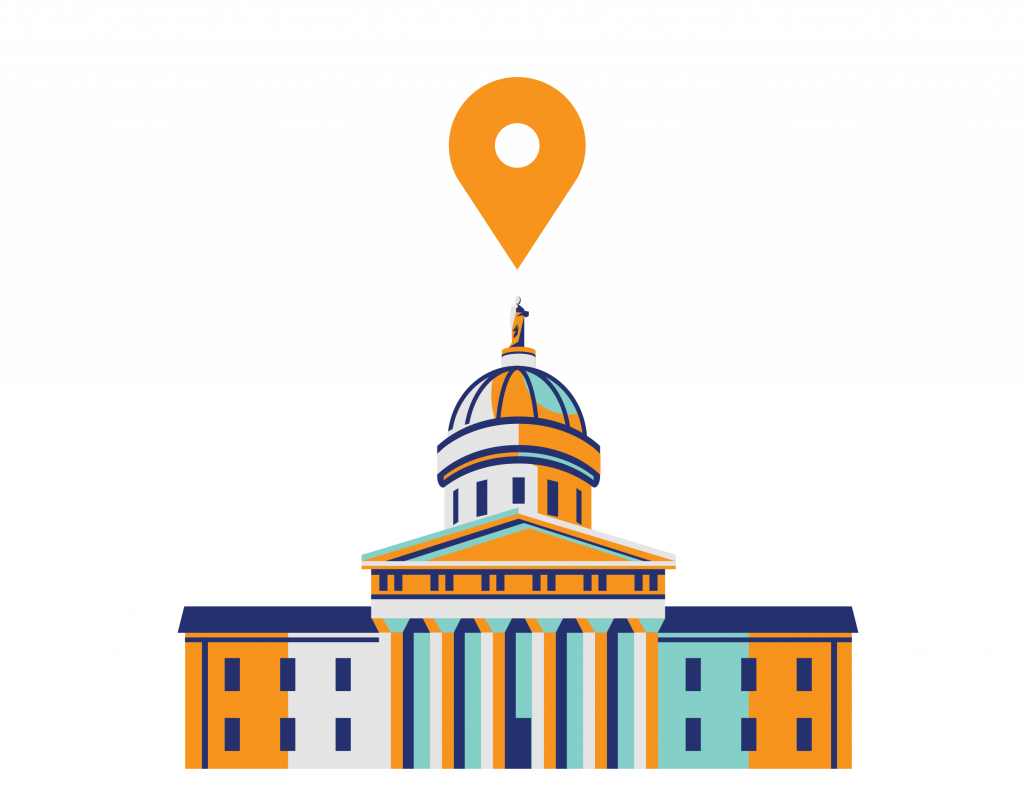Create jobs for displaced workers through licensure reform
Occupational licenses—government permission slips to work—come with steep costs, often involving thousands of hours and dollars of training. Without these licenses, workers can face stiff fines or even risk jail time—even when the work they want to do is perfectly safe.
It is widely recognized that occupational licensing restricts job opportunities, hinders innovation, and raises prices for consumers. There is overwhelming agreement across the political spectrum, from the left and the right that licensing hurts workers and needs to be reduced. By one estimate, licensing means 2.85 million fewer jobs each year. The only beneficiaries? Industry insiders—typically, the schools who benefit from tuition costs and free labor from students or trade groups that benefit from less competition. These are not costs we can continue to bear during this recession, especially when we have millions of people who need to get back to work.
There are practical steps policymakers can take to scale back licensing to create jobs while ensuring the public’s health and safety, and we are excited to help you find those opportunities.
For example, in June, Florida passed the Occupational Freedom and Opportunity Act, which repealed or reformed over 30 licenses, including reducing required educational hours for certain licenses.
The Institute for Justice stands ready to help you identify practical and impactful opportunities in your state to break down barriers to work.

Alternatives to Licensure
Reform of occupational licensing does not present a binary choice between licensing or no licensing. And it is important to remember that rolling back and repealing licensure does not have to leave businesses entirely unregulated.
There are many alternatives to licensing. The inverted pyramid offers a menu of less restrictive regulations that allow states to narrowly address evidence of consumer harm but do not block entry into an occupation.
States can review all existing licenses and proposals for new licenses to ensure occupational regulations are targeted at protecting health and safety—and use the least restrictive means for doing so. The Institute for Justice’s Model Occupational Licensing Review Law creates a process for policymakers to conduct this kind of review, weigh all of their options, and choose the least restrictive regulation that will serve the public interest.
Examples of alternative approaches to licensure states can take include:
- Repeal licenses or exempt safe services from licensure. Some services are so safe that no license is needed in the first place. Examples include makeup artists, house painters, and interior designers—while all safe services, some states erect huge barriers to entry. If there is no evidence of harm, licenses should be repealed.
- Replace licenses with certification. Voluntary certification sends the same signal to consumers as a license, without the roadblocks to work. Indiana’s Professional Licensing Agency, which oversees licensed occupations, put forward a plan for reducing licensing barriers by establishing self-certification as an alternative.
- Replace licensing with a straightforward, simple inspections process. This is the commonsense approach states take to regulating restaurants. Rather than licensing cooks or waitstaff, the government only inspects restaurants to ensure proper health and safety precautions are being taken—often the primary goal of individualized licensure.
- Allow workers to opt for experience instead of education. Many workers would be better served by 1,000 paid hours on the job instead of 1,000 hours of expensive training in a classroom, but many occupations have huge education prerequisites that few displaced workers today can afford. Just to cut men’s hair, barbers in every state have to first obtain at least 800 and up to 2,100 hours of education. To wash hair, 25 states require at least 1,000 hours of schooling. Paid, on-the-job training in lieu of expensive schooling would be much more appealing to the currently unemployed.
Recognition of Licenses
Licenses are often not recognized across state lines, and even when they are, there can be significant costs to get them recognized. But workers don’t lose their job skills just by moving across state lines. And now, as many are uprooting and moving away from city centers or back in with family, interstate mobility is more important than ever. States should universally recognize out-of-state licenses and government certifications if the worker is currently licensed in another state.

Eliminating Idiosyncrasies
Some states continue to impose occupational licensing requirements that do not exist in most other states, and accomplish nothing beneficial by doing so. The absence of these licensing requirements is not causing any problems elsewhere; they are only killing jobs where they are imposed. For instance, only Louisiana, Nevada, and D.C. require a license for interior design, requiring four to six years of education. Only Louisiana requires florists to be licensed, which requires an exam judged by existing florists. These are low-hanging fruits that are ripe for the picking as lawmakers look for ways to create jobs.
Consumer Protection Act
Policymakers can couple any licensing reform with a consumer protection act, making it easier for consumers who have been harmed to file lawsuits against providers, including those that are unlicensed. While many states already allow consumers to sue providers through private causes of action, policymakers can help make it easier for consumers to get into court by allowing consumers to bring their claims in small claims court or to recover attorneys’ fees if they prevail. Policymakers can also empower attorneys general to file lawsuits against providers who have engaged in deceptive trade practices. The potential for liability creates an additional incentive for providers to offer quality services and provides a remedy if someone is harmed.
Get Started Today.
Please fill out this form and an IJ staff member will reach out to you shortly.
